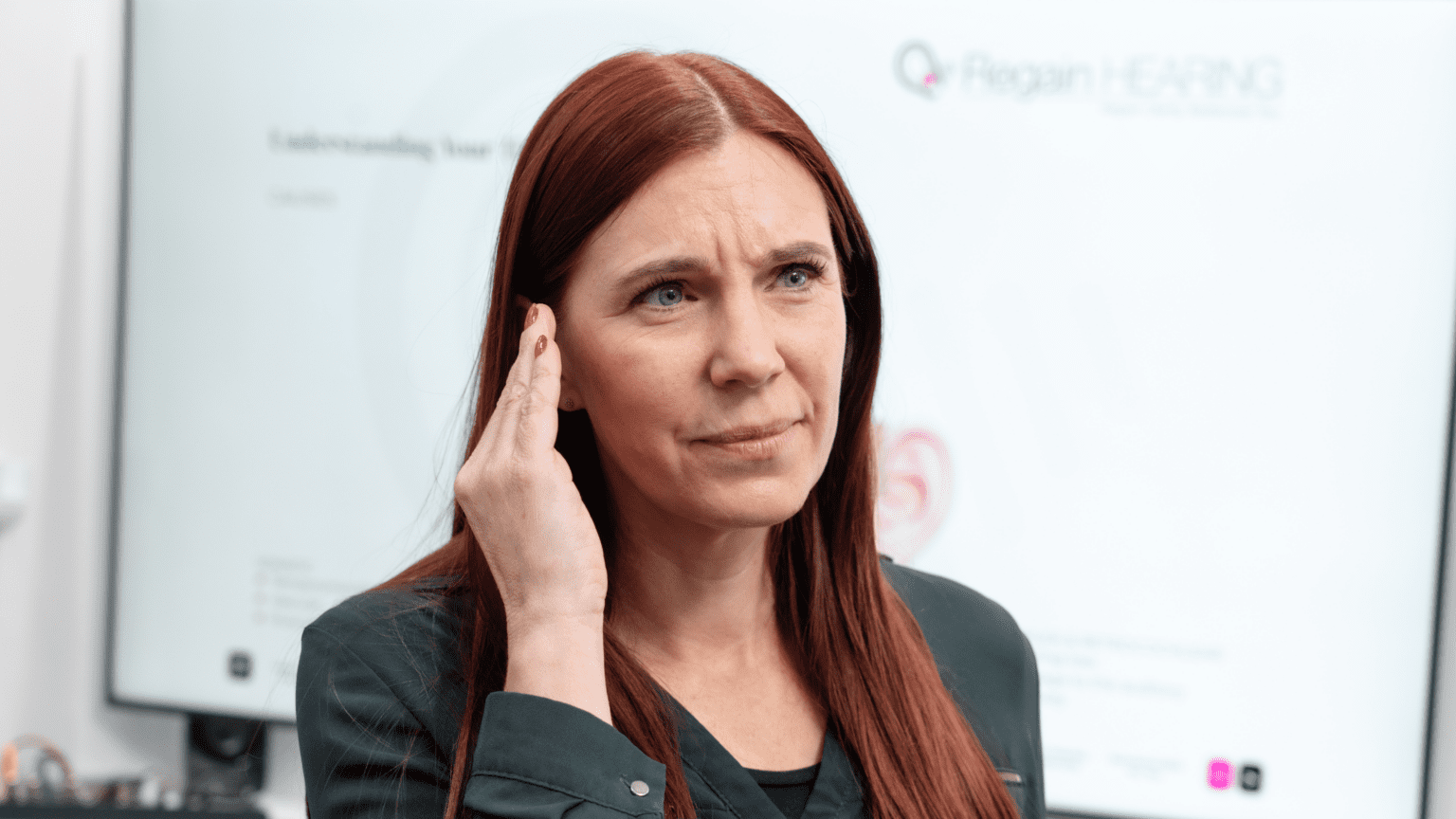Hearing loss is a common effect of ageing, and while losing some of your hearing capacity isn’t thought to directly cause dementia, there are links between the two.
Older adults at risk of cognitive decline or who have already been diagnosed with dementia can become more exposed to rapid degeneration, given that hearing loss can impact their ability to communicate, watch TV, join in with social occasions or chat with friends, family and visitors.
The latest studies have shown that those with hearing loss are as much as five times more likely to develop dementia in the future, which is why taking action to manage your hearing, stabilise your ear health and combat long-term hearing loss is so vital.
Hearing Loss and Dementia: Quick Facts
- Losing your hearing doesn’t necessarily cause you to develop dementia, but there is a huge body of research that shows a connection between hearing loss and an elevated dementia risk.
- Hearing loss in older adults can have devastating effects, from social isolation and depression to losing the ability to focus or consume information, especially where the body’s cognition is being stretched and pressured due to limited hearing.
- Over time, untreated and progressive hearing loss can contribute to changes in the way our brains function, which shows that hearing loss is clearly a risk factor, if not a direct cause, in a large proportion of older adults who go on to be diagnosed with dementia.
Why Are Hearing Loss and Dementia Thought to Be Connected?
Hearing loss can occur for all sorts of reasons, but age is the most common. Many people naturally have less sharp hearing as they age, but the challenge is where initially mild hearing loss at around midlife isn’t tackled or addressed and is allowed to become worse.
Researchers have found that the risk of developing dementia increased by five times, a shockingly high correlation, and these findings are undergoing further analysis to see whether adequate audiology support could make a difference to the one million adults in the UK with dementia.
Some analysts believe that the link is down to the way some forms of dementia, primarily vascular dementia, affect blood flow to the brain. If that blood flow is limited, brain cells, including those that manage our auditory system, can become damaged.
However, others feel the link between dementia and hearing loss is more likely attributed to inflammation in the brain, caused by a drop in the way the brain’s immune cells protect it from damage.
There is also a school of thought that adults who have spent extended periods of time in high-noise environments encounter damage to their cells and subsequent inflammation, which could potentially be a reason why hearing loss has been shown to speed up the rate at which dementia symptoms become apparent.
What do our audiologists say?

Indirect Connections Between Dementia and Hearing Loss
We mentioned earlier the issues around isolation, depression and losing the ability to communicate, and the effects on older adults, especially those living alone, can be profound. In short:
- If older people with hearing loss cannot stay connected or feel cut off from support groups and friends, they gradually become less able to stimulate their brains or use the skills we rely on to talk, focus, recall facts, and remember names.
- Everybody has a cognitive reserve, which is how our brain operates when we have a tricky puzzle to solve or are trying to remember a distant memory. Without using those parts of the brain for communication and recall, the cognitive reserve may ‘run out’, which means the dementia risk rises.
- Some clinicians think hearing loss forces those affected to use more of their brainpower to process sounds. This compromises other cognitive functions and might mean a person can hear with significant effort but becomes less able to remember.
The positive is that hearing protection, advanced, customised hearing aids and ear health services can effectively reduce and minimise hearing loss or prevent damage from occurring to your hearing in the first place.
Why Professional Hearing Checks, Aids and Treatments May Reduce Dementia Risks
A study supported by Alzheimer’s Research UK found that if the audiology profession were to find a way to completely remove all mid-life hearing loss from across the population, the outcomes would include a 9% reduction in the number of people diagnosed with dementia.
The NHS supports these findings, stating that:
- Untreated mild hearing loss doubles the risk of developing dementia.
- Moderate hearing loss, if not treated, increases dementia risks by three.
- More severe or extensive hearing loss that isn’t properly managed makes the risk of being diagnosed with dementia five times higher.
Most professionals agree that wearing hearing aids to reduce the strain on the brain when trying to hear sounds, protect against social isolation, and prevent avoidable further hearing loss may also be a good way to lower the risks of dementia and cognitive decline.
One issue is that many people live with mild hearing loss for extended periods before seeking help, which might mean that damage is being done to their hearing and the neural pathways in their brains until they decide to have their hearing checked and opt to wear hearing aids.
It is always worth having a hearing assessment, even if hearing loss isn’t yet impacting your quality of life, because the benefits of wearing hearing aids earlier rather than later could be compelling.
Indications That You Would Benefit From a Hearing Evaluation
Any changes to your hearing should be investigated as soon as possible. Protecting your hearing and diagnosing issues can prevent many of the adverse outcomes we’ve discussed here.
We can also recommend professional-quality hearing protection devices for those exposed to continual noise or very loud noises through their professions. These devices safeguard the ears from damage and can go a long way toward preventing hearing loss from developing.
While well-managed hearing loss isn’t necessarily a guarantee against being diagnosed with dementia, it certainly has a role to play and can help older adults remain active, engaged, and involved members of their families and communities.








